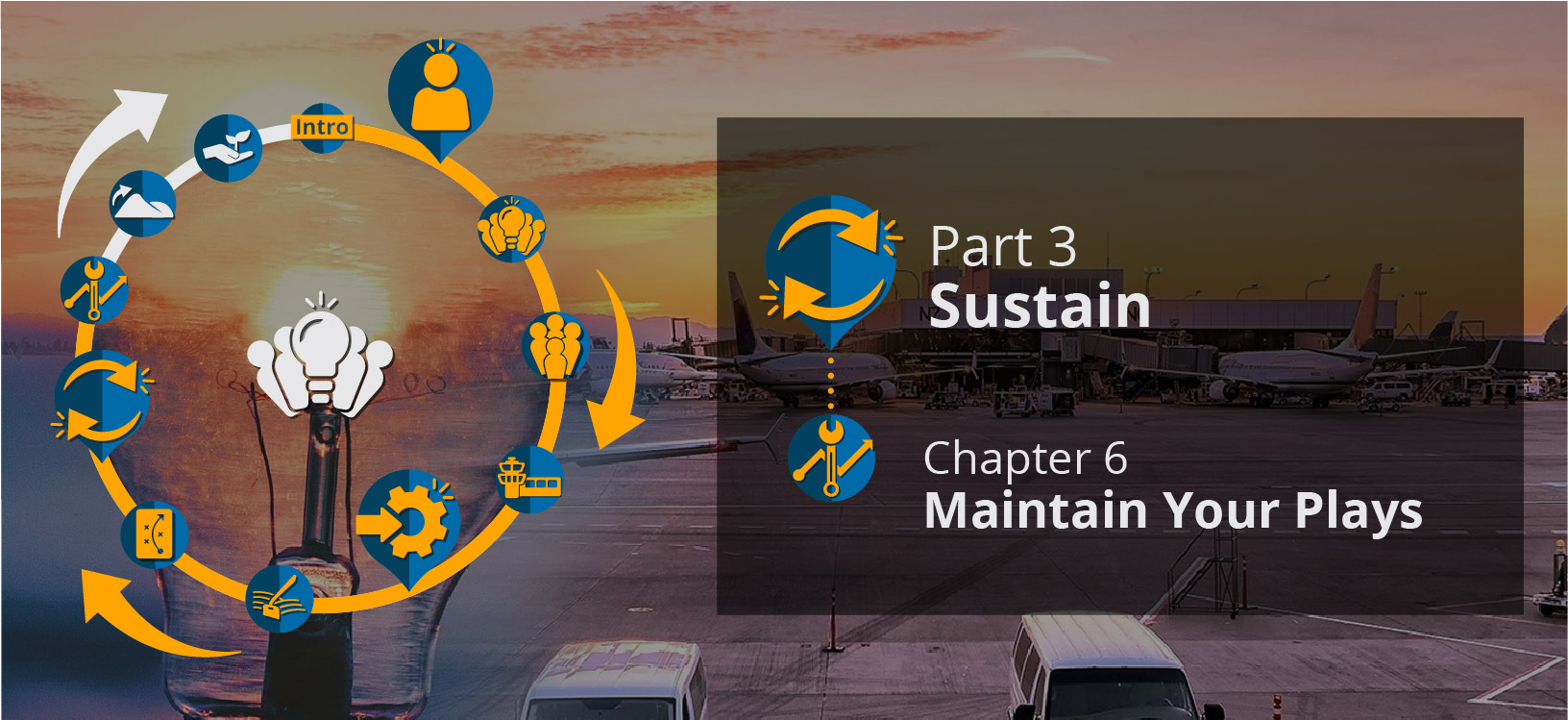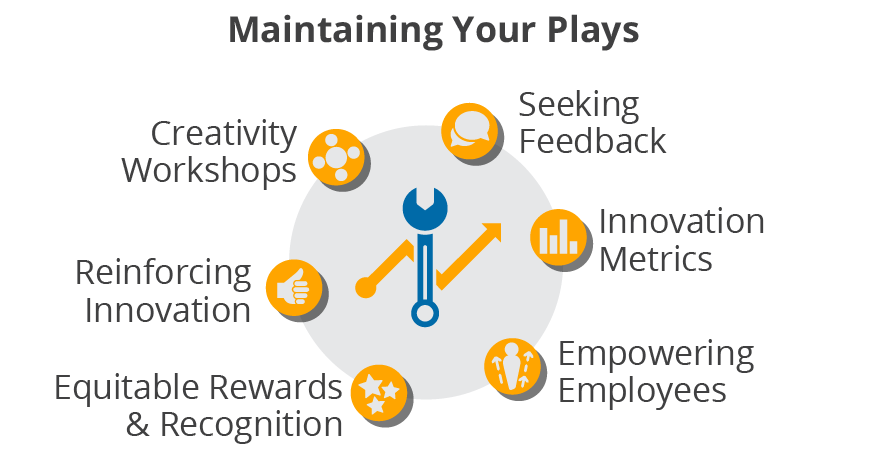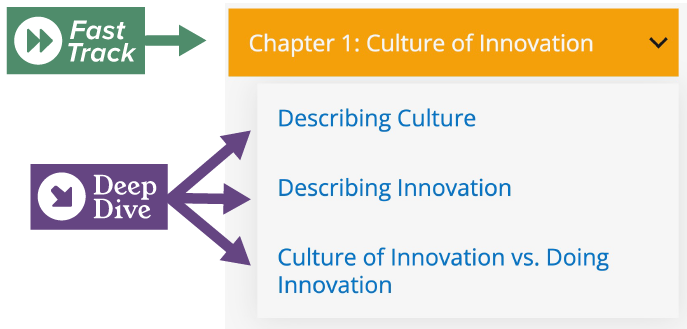
Chapter 6: Maintain Your Plays
Why the Need for Maintenance?
Just as the concept of ”plays” comes from sports terminology, another action in the sports world is also important for airports to accomplish: reviewing your plays. Plays are only effective for teams when they are practiced, and plays need to be reviewed often to ensure they are effective for their intended purpose. Reviewing and practicing will help you
- Establish the expectations of each team member for each play.
- Review current performance levels against expectations.
- Evaluate how each play contributes to the overall program.
- Look for potential points of failure that might be preventing plays from being implemented fully.
- Find minor gaps in the program and make improvements before the gaps become significant.
- Preserve the overall culture of innovation from failure or decline.
Figure F6.1 summarizes some of the ways to maintain your plays.

Figure F6.1: Maintaining Your Plays.
Seek Feedback
Feedback is an integral part of knowing how effective an activity has been. Consider the following insights as you think about adjustments to any of your plays.
- Collect information. (Seek fast feedback from small observations, recalibration of ideas, and mini experiments.)
- Comment often yet constructively. (Coach, guide, and provide constructive comments.)
- Acknowledge all ideas. (Don't let ideas stay at the bottom of the “suggestion box.”)
- Conduct employee engagement surveys. (Capture honest and anonymous perceptions from your employees.)
- Ensure innovation awareness. (Set aside time in staff meetings, communicate upwards, and acknowledge contributions.)
Innovation Metrics
Clearly identifying how your organization can measure a team's successes (or failures) can strategically position you to make better decisions regarding your program going forward. And clarity about what is considered successful toward a culture of innovation will empower your employees to think with an innovative mindset. Consider the following ideas:
- Develop metrics (incorporate metrics as part of your core business functions; capture key industry benchmarking metrics).
- Understand metrics (ensure they are based on the desired outcomes of the ideas and cultural elements that influenced them; aligned with the airport's vision/mission; aligned with initiatives important to your business and customers).
Equitable Rewards and Recognition
Very few organizations maintain policies on rewards and recognition programs. Consider incorporating the following components to further enhance your culture of innovation and avoid potential pitfalls of unintended consequences with rewards and recognition.
- Reward equitably. (Decide ahead of time which behaviors will be rewarded to help ensure equitable actions.)
- Reward experimentation. (Reward and recognize innovative behavior, and provide equitable opportunities for more people to participate and receive recognition.)
- Ensure recognition. (Award publicly to motivate the recipient and inspire others.)
- Avoid unintended consequences. (Avoid inadvertently rewarding negative behaviors, like jealousy or cheating.)
Empower Your Employees
Many of the plays in Chapter 5 are meant to help empower your employees. After some time, look at the results and consider ways to ensure
- Employee autonomy. (Find ways to let staff think independently and solve problems in new ways so they can see their ideas have value.)
- Consistency. (Ensure that leaders listen to, mentor, trust, and empower their teams.)
- Significance. (Ensure that staff feel valued by others for their contributions and “valuable” for the actual work they contribute.)
Reinforce Innovation
An organization's culture can either promote innovative values or create impasses for innovation to take hold. Consider integrating some of the following components to help further define the relationships between people and positions at an airport.
- Foster dialogue. (Regular talks about innovation help staff understand their role and remind them that innovation is a priority.)
- Ensure equitable access. (Ensure that workshops, training functions, or brainstorming sessions on innovation are conducted across all functions and through all hierarchy levels.)
- Define expectations. (Engage with employees to help them fully understand what an innovation culture means for the airport through training seminars, workshops, or crash courses on innovation.)
Creativity Workshops
Providing opportunities for staff to collaborate through a variety of informal and formal mechanisms can assist the staff with building relationships and bring clarity to daily tasks.
- Collaborative opportunities. (Engage team members across all functions to develop new ideas and solutions via lunches.)
- Facilitated activities. (Engage the services of a facilitator to engage your team with exciting topics and challenging issues.)
- Equipped to succeed. (Ask employees to develop ideas that they will present to management; provide presentation training, if needed.)




